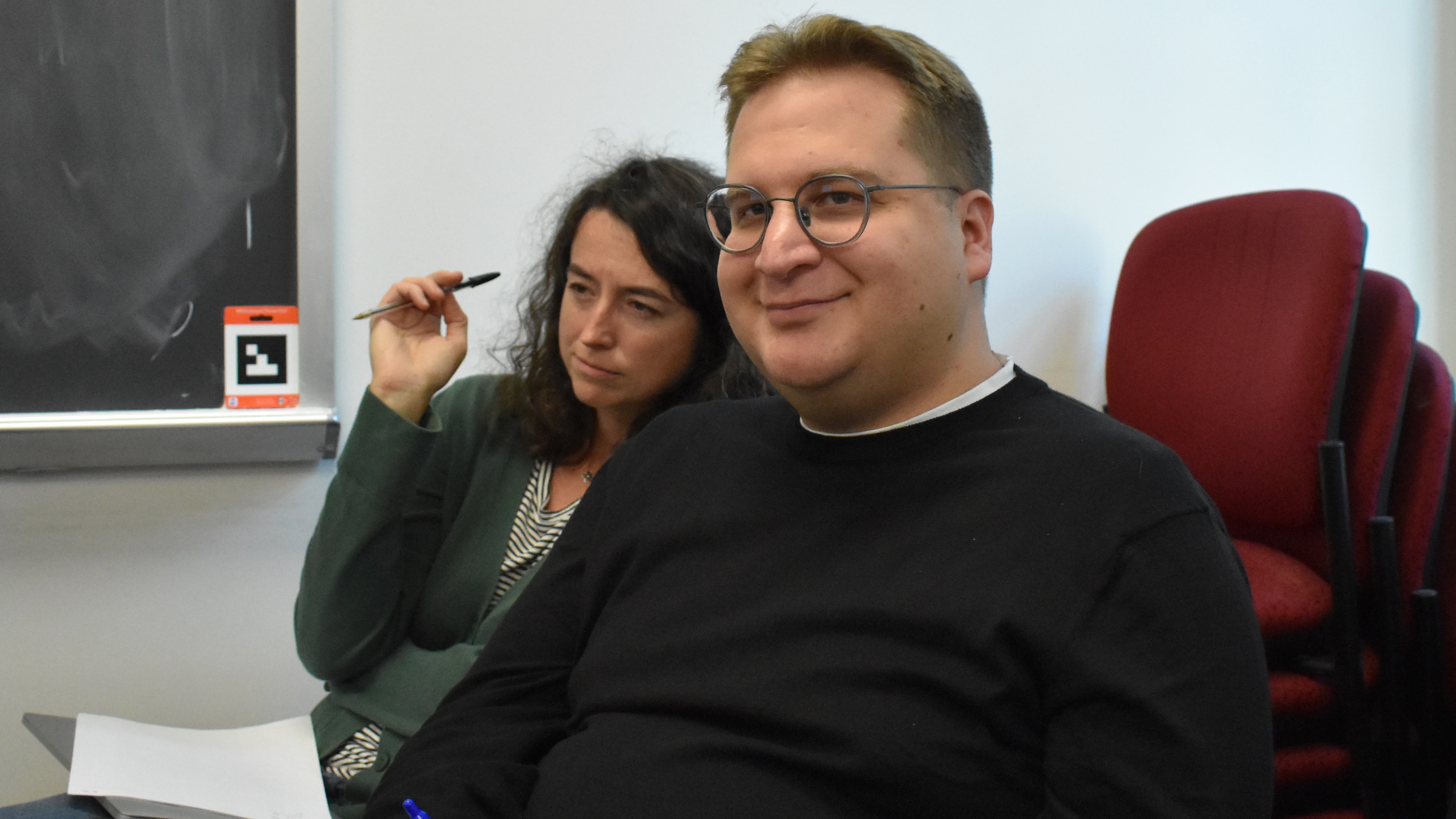Aron up at Yale
February 01, 2025

Allowing for more complex alternatives, pragmatically.
Monday February 3, Aron Hirsch is up in New Haven, giving the Monday Colloquium talk at Yale Linguistics, on the topic of "Alternatives in Focus," joint work with Bernard Schwarz at McGill, abstracted below.
Only applies to a proposition, p, presupposes that p is true, and asserts that alternatives to p are false. But, what alternatives does only exclude? In (1), uttered out of the blue, only can exclude the alternative in (1a) to convey that Al slept and did not run. Yet, it cannot exclude (1b) to convey that Al did run. (1b) contains negation, and is not an alternative for only here.
(1) Al only slept.
a. Al ran.
b. Al did not run.
Fox & Katzir (2011) propose that the grammar disallows alternatives which are more structurally complex than the prejacent. (1b) is more complex, due to the presence of negation. Yet, in this talk, we show that there are cases where structurally more complex alternatives are attested (adding to e.g. Trinh & Haida 2015, Hirsch & Schwarz 2023, Schwarz & Wagner 2023, 2024). Based on these data, we will pursue an approach where the grammar generates alternatives independent of their complexity, and take the distribution of complex alternatives to be regulated pragmatically by the Question Under Discussion (as in Roberts 1996, Beaver & Clark 2008, Katzir 2023).

